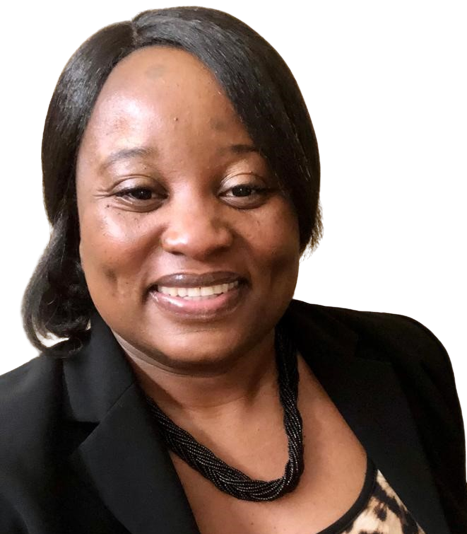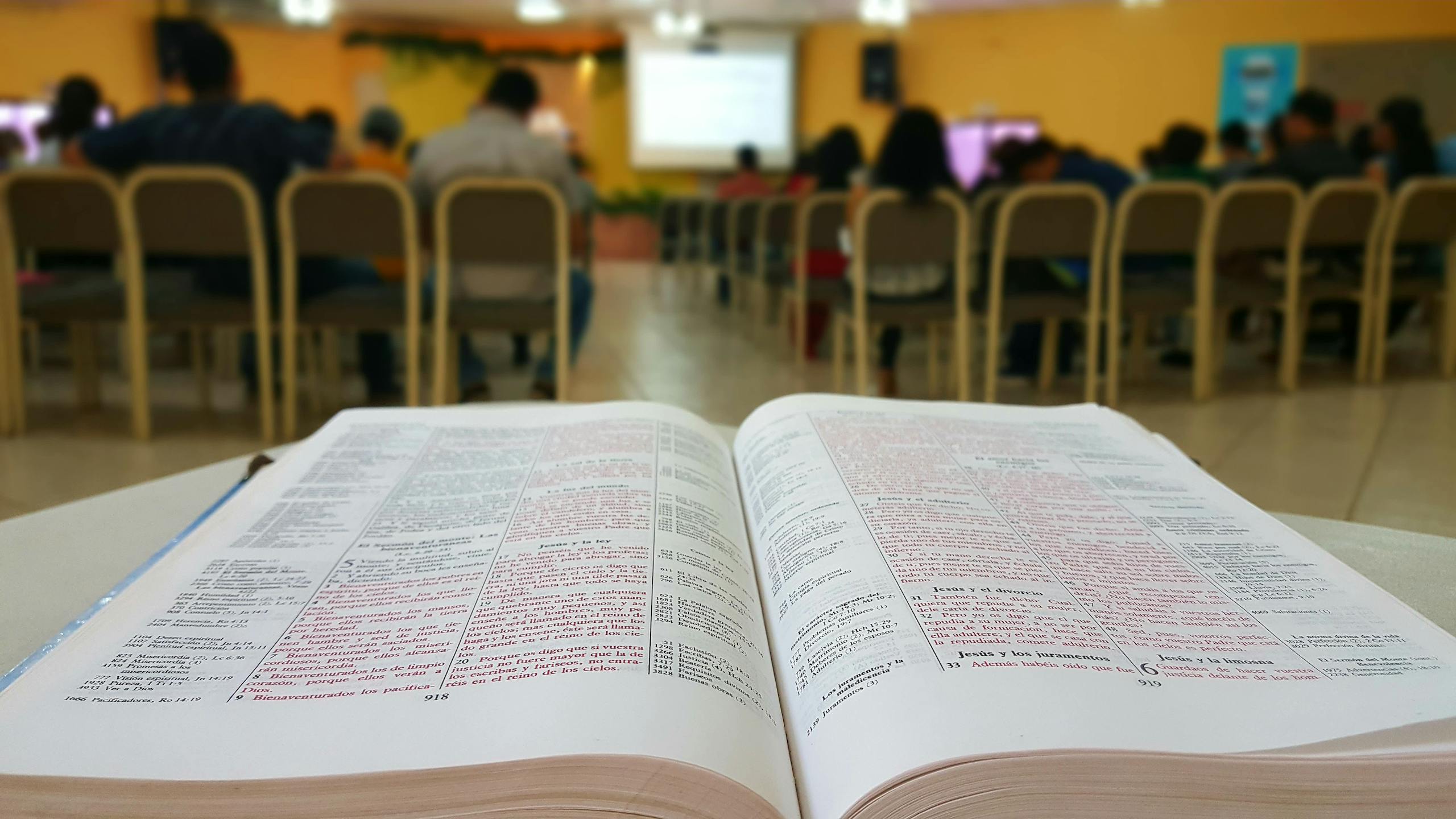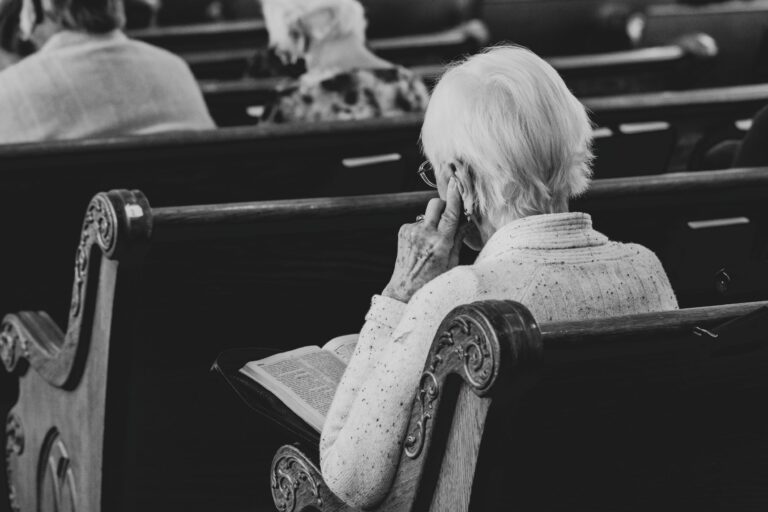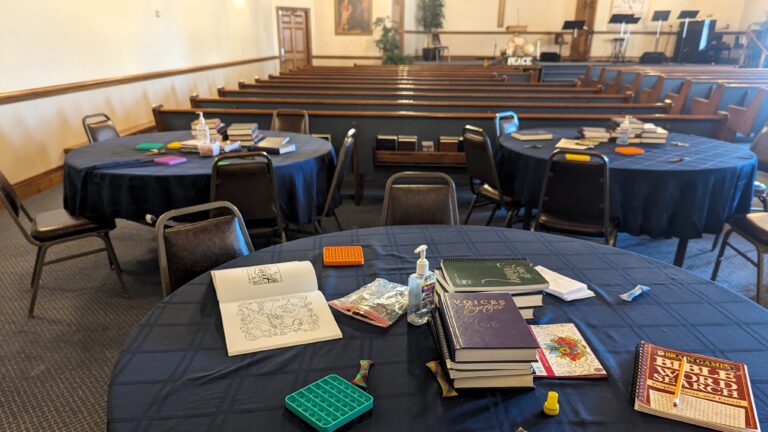The “Me” You Don’t See
The Stigma around Mental Illness and the Church
I came and found the courage to walk inside.
I could only make it to the last pew, the first one I could reach.
That's all the strength I could master.
It took everything in me to get out of the house,
Let alone pull myself out of bed.
This was hard… but I made it.
Here I am.
Sitting here with my head bowed,
Keeping my head low,
Doing my best not to let anyone catch my eyes.
Just in case they see through me.
But do they even see me?
I came back, over and over again.
I sat in the Sunday school class.
I went to the women's events.
I even helped in the nursery and at church picnics.
I came back hoping that this time would be different.
And it wasn't.
I smiled, not to look like a sour apple.
I nodded, not to appear like a Debby Downer.
I held on to faith, not to be called an atheist.
I showed up, but I was dying inside.
And nobody saw me.
They didn't see the pain.
They didn't see the sleepless nights.
They didn't see the confusion in my mind.
They didn't see the tears.
They didn't see me.
The me that needed a touch of humanity,
More than anything.
The me that needed someone to see into me,
More than what I could help with.
Do you see me, Lord?
I know you love me.
I know you care.
I know you have good plans for me.
I know Your promises are yes and Amen.
But here I am…
Broken.
Hurting.
Lost.
Invisible.
Mute.
Living is too hard.
How can I be alive and feel so dead?
Maybe dying would be a relief.
Cause being here just seems like too much.
I prayed.
I read the Bible.
I believed every word.
I even fasted.
And this thorn in my flesh
Is still mocking me.
Do I still matter?
Do I have purpose?
Can you revive me?
I hope so, Lord!
Cause' I got no strength to do it myself.
Many in our churches are having this internal dialogue. I did, many times on my journey. Many are suffering in silence because of the stigma surrounding mental illness. We’ve come a long way, but there is still a lot that must be done. Most churches would say their doors are open to all, but are our hearts open to all as well? We let people in the building, but we don’t fully accept them once we discover they have a mental illness.
Before you dismiss the aforementioned statement, consider this: Those with physical illnesses receive more acts of compassion than those with mental illnesses. The card showers, the meal wagons, the hospital and home visits, etc. Perhaps many suffer in silence because they have seen how congregations treat those who disclose. They don’t want to be told they are not praying hard enough. They don’t want to be judged as lacking faith. They don’t want to be the subject of side conversations.
Having a mental illness is challenging, but what hurts the most is being misunderstood and/or excluded by those we need the most. Fifteen years ago, I found myself struggling with suicidal thoughts and was admitted to a psychiatric hospital. Thankfully, I recognized that those thoughts were the depression talking and not myself, and I quickly called for her. However, when I was released from the facility, I recall a dear Christian friend, who was very close to me, telling me, “You are the one who said those words; you are the who made those threats,” when I started sharing how people treated me differently since my hospitalization. This is what happens in our faith communities: well-intended people say hurtful things that make others feel like outcasts!
Mental illness is more prevalent and debilitating than you may realize:
- Worldwide, common mental disorders affect one in five adults1
- Major mental disorders affect between one and seven percent of adults.2
- About 10 to 20 percent of children and adolescents suffer from mental disorders.3
- Half of all mental illnesses begin by the age of fourteen.4
- One-third of years lived with disability are due to mental illness. 5Because mental disorders begin early in life and tend to be chronic, they represent the leading cause of disability worldwide.
- Mental disorders also shorten lives. Life expectancy is reduced by 10 to 20 years for those suffering from major mental disorders.6
What are we to do with this?
What would Jesus do?
I believe Jesus would build community around those with mental illnesses, no matter the diagnosis. He wouldn’t see them as “less than.” In His eyes, depression, anxiety, bipolar disorder, and schizophrenia do not define us. Jesus values those affected with mental health challenges. He would make time to pause, listen, and serve, like he did for the women caught in adultery (John 8:1-11), the blind man (John 9), Zacchaeus (Luke 19:1-10), and many more. We all matter to Jesus, no matter our challenges, weaknesses, and shortcomings.
In my workshop titled “From Illness to Wellness,” I teach how when we change “I” to “We,” illness becomes wellness. Healing happens in community. All of us have a place and a part to play in God’s kingdom. Let’s be more intentional about cultivating wellbeing and belonging for all as Christ followers!

Chou is the founder and CEO of Grace & Hope Consulting, LLC,. She identifies as a person with disabilities and is the primary caregiver for three family members with diverse physical, behavioral, and developmental needs. With post-graduate training in Rehabilitation Counseling and over twenty years of experience in human services, Chou is passionate about making a difference for individuals and communities. She is a Certified Trauma-Competent Professional and is very intentional about creating healing and thriving spaces for all. Chou and her family reside in Pennsylvania, but she is originally from Brazzaville, Congo and speaks French.








